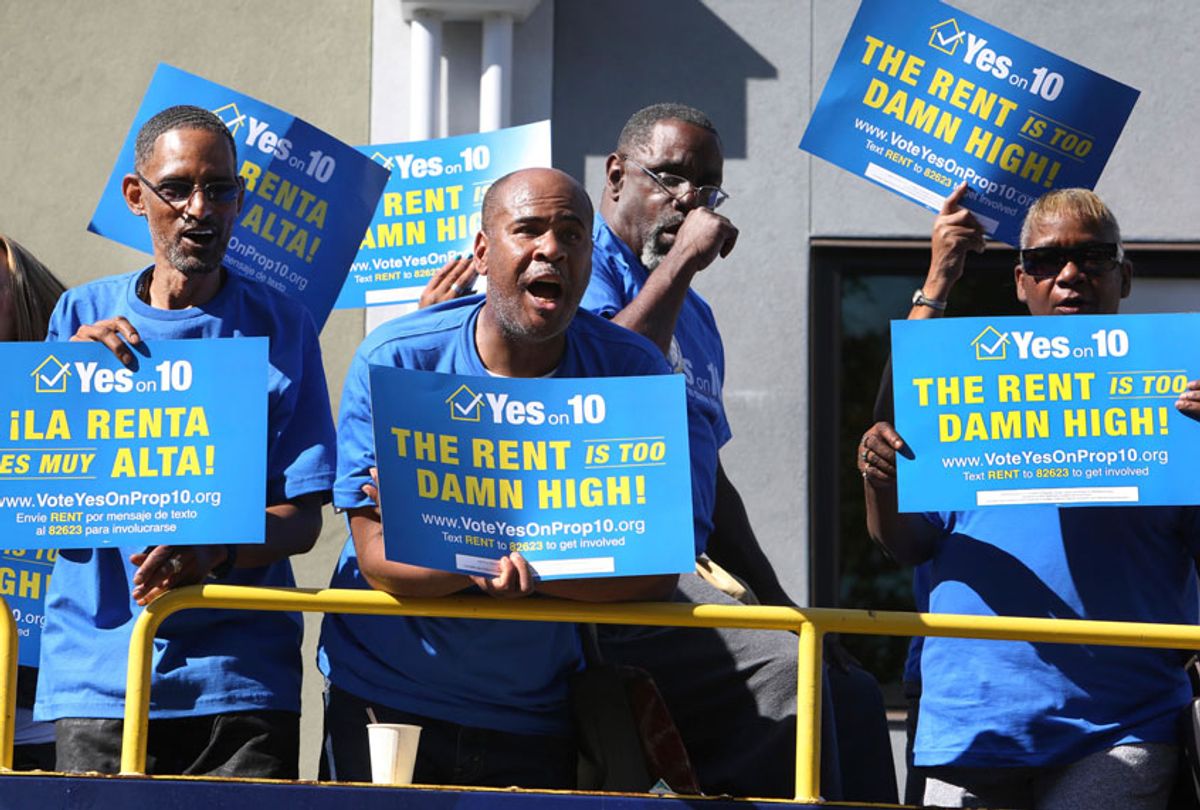The state of California voted no on Proposition 10, a proposed legislation that was meant to address the housing crisis in the state by repealing the Costa-Hawkins Rental Housing Act of 1995. At nearly 3 million votes left to be counted, the measure had suffered a loss by a 30-point margin, according to ABC.
Proposition 10 proved to be a contentious ballot measure. The Costa-Hawkins Rental Housing Act restricts cities from implementing rent control to single-family homes and apartments built after 1995. Under the act, landlords have the power to raise rent as much as they’d like after a rent-controlled tenant leaves, too.
According to the campaign supporting the measure, “Yes on 10 Affordable Housing Act,” voting in favor of the ballot measure “empowers local communities to expand rent control to limit skyrocketing rent increases and address predatory housing practices.” The “No on Prop 10” campaign argues it eliminates “protections for homeowners, could impose price controls on those who want to rent even one room of their home, and will reduce home values for middle-class families at a time when many homeowners are counting on their homes to help finance their retirement.”
At the core, Proposition 10 would overturn the Costa-Hawkins Rental Housing Act which was signed into law by Governor Pete Wilson after being pushed by the corporate landlord lobby. Costa-Hawkins has since placed restrictions on the ability Californian cities and counties have to implement rent control, or place restrictions on rising rents. Passing the measure into law gives cities and counties the power to take rent control issues into their own hands again.
Activist Michael Weinstein, who is also president of the AIDS Healthcare Foundation (AHF), was responsible for bankrolling the proposition, which was endorsed by progressive politicians nationwide including Senator Bernie Sanders (I-Vt.).
“Currently California cities and towns aren't permitted to pass rent control measures to address the affordable housing crisis,” Sanders said via Twitter in October. “That should change. Municipalities should have the freedom to deal with the decline in affordable housing and rising rents. Let's pass Prop 10.”
The American Civil Liberties Union (ACLU) endorsed the measure and said if passed it will help address the state’s homelessness crises.
“Without affordable housing, it is impossible to achieve our mission of being a guardian of justice, fairness, equality, and freedom,” Abdi Soltani, executive director of the ACLU of Northern California, said in a statement. "Restoring the power of local communities to limit rent increases is a key component to making housing affordable for all Californians, that is why we fully support Prop 10."



Shares